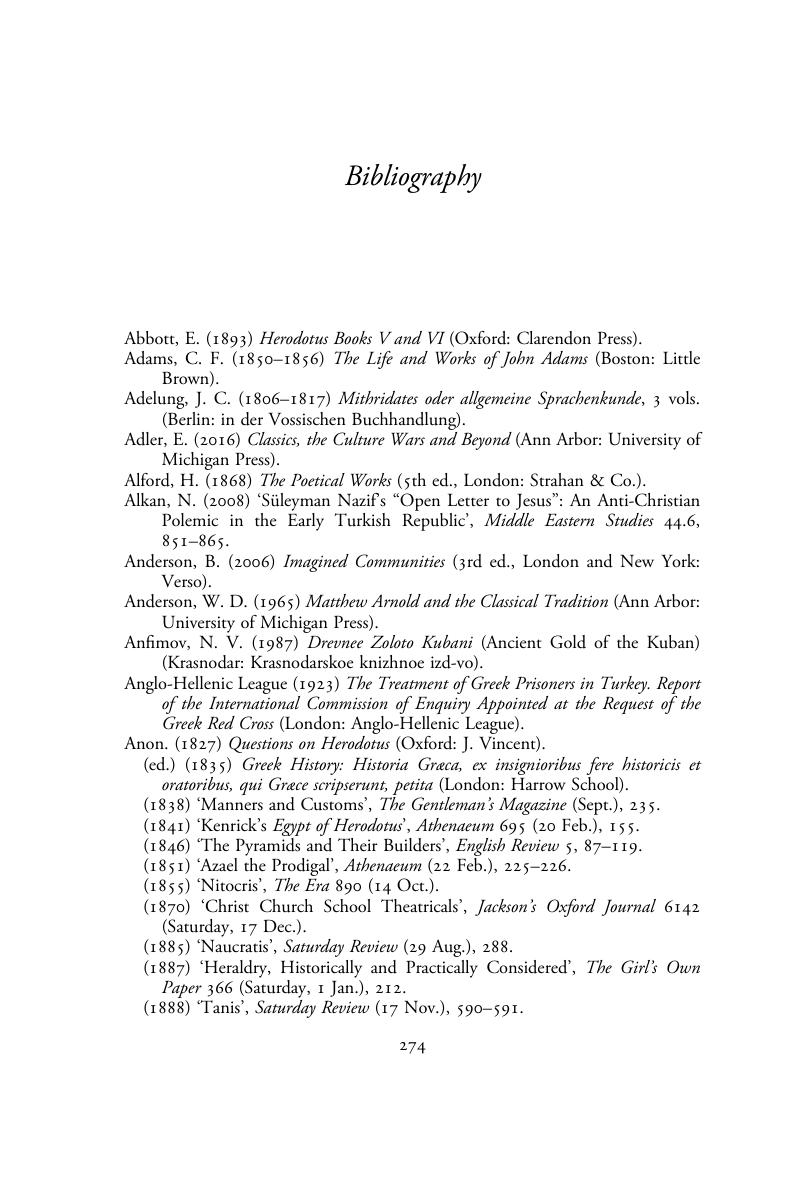Book contents
- Herodotus in the Long Nineteenth Century
- Herodotus in the Long Nineteenth Century
- Copyright page
- Dedication
- Contents
- Figures
- Contributors
- Acknowledgements
- Conventions and Abbreviations
- Introduction
- Chapter 1 From Ethnography to History
- Chapter 2 ‘Romantic Poet-Sage of History’
- Chapter 3 Herodotus as Anti-classical Toolbox
- Chapter 4 George Grote and the ‘Open-hearted Herodotus’
- Chapter 5 Imagining Empire through Herodotus
- Chapter 6 Two Victorian Egypts of Herodotus
- Chapter 7 Of Europe
- Chapter 8 From Scythian Ethnography to Aryan Christianity
- Chapter 9 Herodotus and the 1919–1922 Greco-Turkish War
- Chapter 10 Herodotus’s Travels in Britain and Beyond
- Bibliography
- Index of Passages of Herodotus Cited
- General Index
- References
Bibliography
Published online by Cambridge University Press: 13 March 2020
- Herodotus in the Long Nineteenth Century
- Herodotus in the Long Nineteenth Century
- Copyright page
- Dedication
- Contents
- Figures
- Contributors
- Acknowledgements
- Conventions and Abbreviations
- Introduction
- Chapter 1 From Ethnography to History
- Chapter 2 ‘Romantic Poet-Sage of History’
- Chapter 3 Herodotus as Anti-classical Toolbox
- Chapter 4 George Grote and the ‘Open-hearted Herodotus’
- Chapter 5 Imagining Empire through Herodotus
- Chapter 6 Two Victorian Egypts of Herodotus
- Chapter 7 Of Europe
- Chapter 8 From Scythian Ethnography to Aryan Christianity
- Chapter 9 Herodotus and the 1919–1922 Greco-Turkish War
- Chapter 10 Herodotus’s Travels in Britain and Beyond
- Bibliography
- Index of Passages of Herodotus Cited
- General Index
- References
Summary

- Type
- Chapter
- Information
- Herodotus in the Long Nineteenth Century , pp. 274 - 321Publisher: Cambridge University PressPrint publication year: 2020



